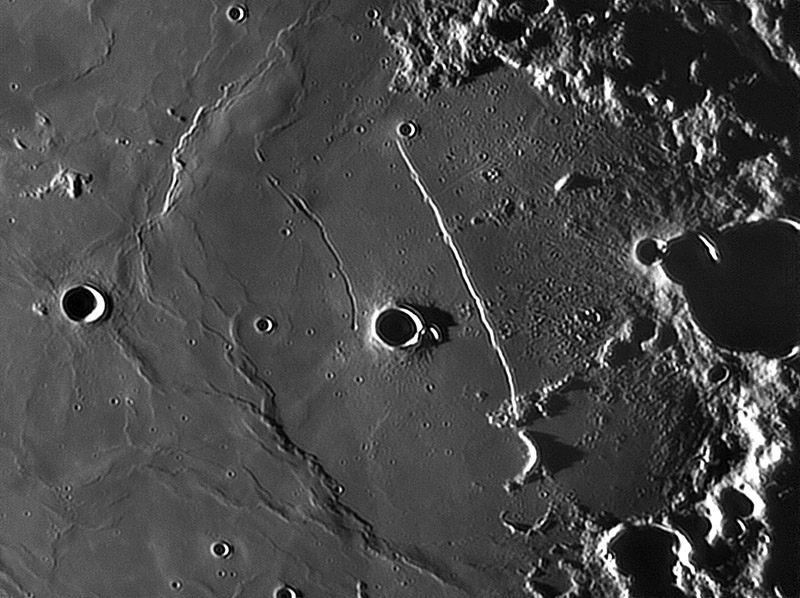November 2, 2013
A Longer Fault
//image by Maximilian Teodorescu, Romania
Max has captured a lovely view just as the sunset terminator reaches the eastern rim of Ancient Thebit (AT), the large old crater containing the Straight Wall. On the smaller image he has marked two features of interest - assuming that everyone is familiar with the Wall itself and the Birt Rille and dome. The two arrows near center right show two shallow depressions nearly at right angles to each other. At least one of them seems related to the delicate rille that extends nearly from the AT wall to the Straight Wall, which it seems to offset. These two depressions, the largest of which appears to be two touching circular pits, have been noticed before. The straight lines trace out a very sharp albedo boundary that extends from the southwest corner of the AT rim, passes through the Birt Dome and bends around to pass north of the Wall. This feature was first noticed in an LPOD from 9 years ago, and low Sun lighting suggested that it is a crease. It may be the boundary of younger Mare Nubium lavas that washed up on to earlier tilted lavas that filled AT before the western half subsided. I never noticed before the extension of this boundary north of the Wall. Finally, if you look beyond the southern end of the Straight Wall there is a perpendicular range of hills and then a bright curved arc. The 17th century lunar observer Christiaan Huygens considered the Wall as a sword's blade, and the curved piece its handle. You can see barely an equal curved mare ridge to the west - the handle is a crater whose western rim has subsided and is covered by lavas. So the faulting that is most visible in the Wall itself, continued to downdrop the short mountain range and cut a crater in half.
Chuck Wood
Technical Details
October 27, 2013, 02:00 U.T. C11@F/25, ASI120MM, IR-pass filter (685nm). 1500 frames. Seeing 6/10.
Related Links
21st Century Atlas chart 16.
COMMENTS?
Click on this icon File:PostIcon.jpg at the upper right to post a comment.




